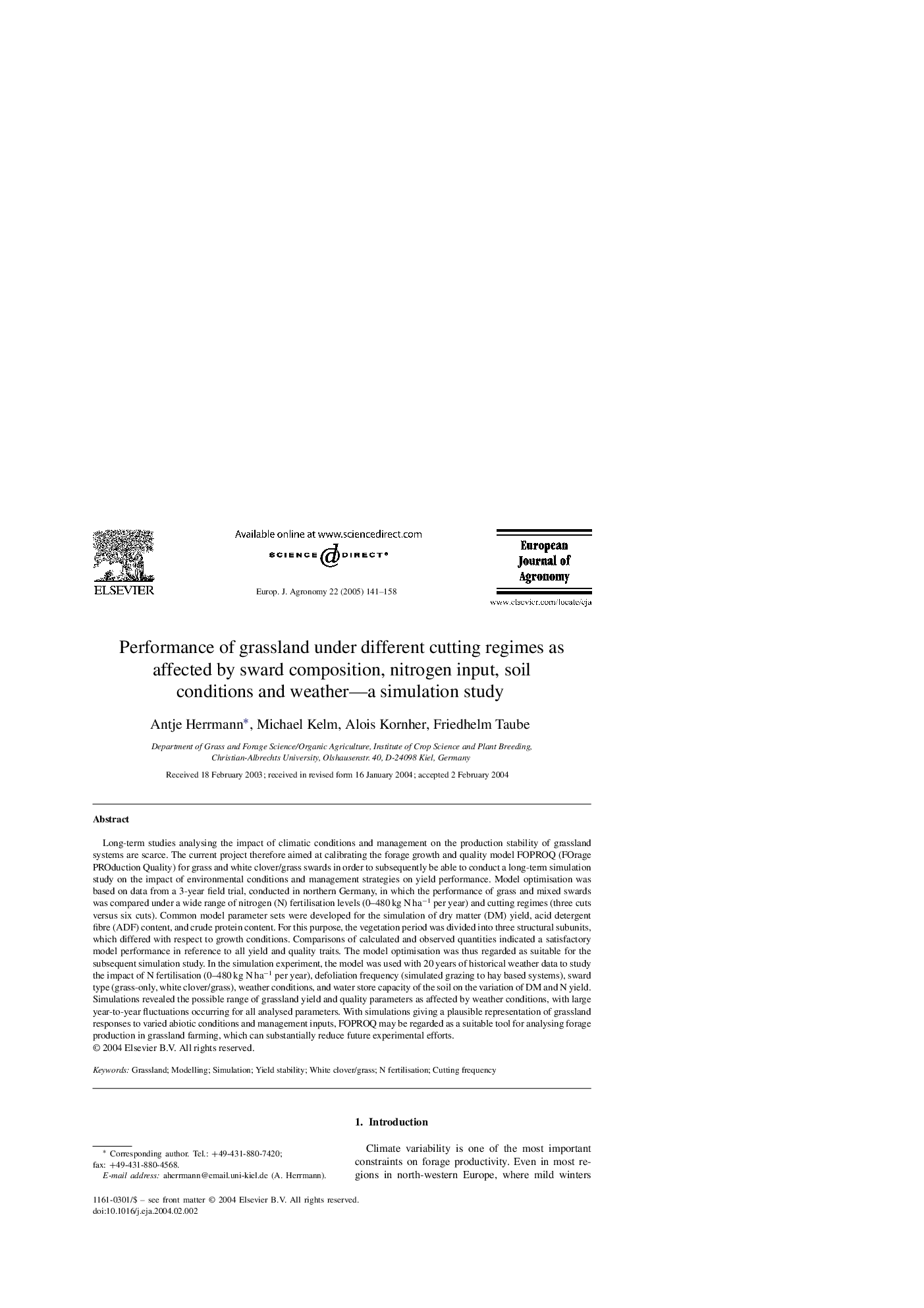| Article ID | Journal | Published Year | Pages | File Type |
|---|---|---|---|---|
| 10116654 | European Journal of Agronomy | 2005 | 18 Pages |
Abstract
Long-term studies analysing the impact of climatic conditions and management on the production stability of grassland systems are scarce. The current project therefore aimed at calibrating the forage growth and quality model FOPROQ (FOrage PROduction Quality) for grass and white clover/grass swards in order to subsequently be able to conduct a long-term simulation study on the impact of environmental conditions and management strategies on yield performance. Model optimisation was based on data from a 3-year field trial, conducted in northern Germany, in which the performance of grass and mixed swards was compared under a wide range of nitrogen (N) fertilisation levels (0-480Â kg NÂ haâ1 per year) and cutting regimes (three cuts versus six cuts). Common model parameter sets were developed for the simulation of dry matter (DM) yield, acid detergent fibre (ADF) content, and crude protein content. For this purpose, the vegetation period was divided into three structural subunits, which differed with respect to growth conditions. Comparisons of calculated and observed quantities indicated a satisfactory model performance in reference to all yield and quality traits. The model optimisation was thus regarded as suitable for the subsequent simulation study. In the simulation experiment, the model was used with 20 years of historical weather data to study the impact of N fertilisation (0-480Â kg NÂ haâ1 per year), defoliation frequency (simulated grazing to hay based systems), sward type (grass-only, white clover/grass), weather conditions, and water store capacity of the soil on the variation of DM and N yield. Simulations revealed the possible range of grassland yield and quality parameters as affected by weather conditions, with large year-to-year fluctuations occurring for all analysed parameters. With simulations giving a plausible representation of grassland responses to varied abiotic conditions and management inputs, FOPROQ may be regarded as a suitable tool for analysing forage production in grassland farming, which can substantially reduce future experimental efforts.
Related Topics
Life Sciences
Agricultural and Biological Sciences
Agronomy and Crop Science
Authors
Antje Herrmann, Michael Kelm, Alois Kornher, Friedhelm Taube,
